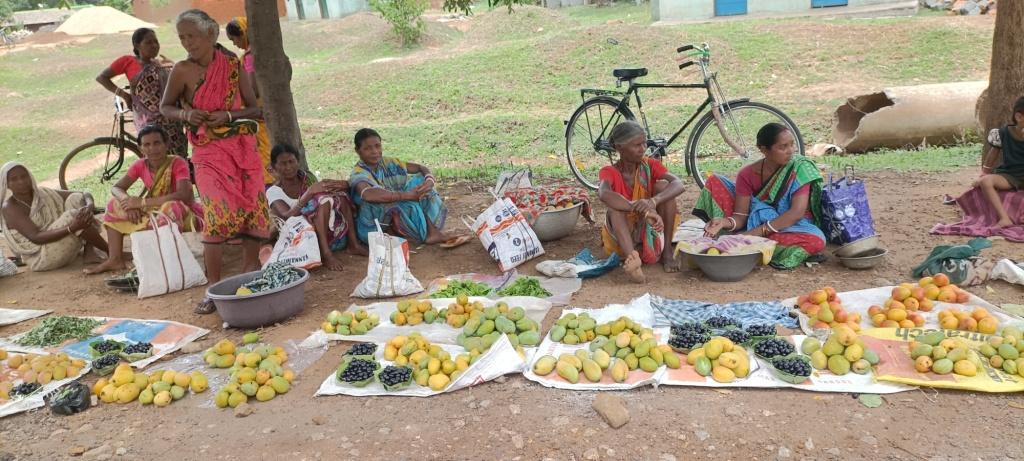Keonjhar: The drastic fall in sale of local mangoes and other seasonal fruits has affected the livelihood of tribals living in Kenonjhar district. The tribals depend greatly on the sale of local variety of mangoes as it helps them earn handsomely and eke out a living during lean times. However, the lack of proper storage and marketing facilities has forced them to sell the mangoes at throwaway prices.
Also, the entry of hybrid mango varieties, which are grown with rampant use of fertilizers, has affected the sale of local ones. Locals said the state government should provide proper storage and marketing facilities for mangoes growing in this district. They added that the government can buy large quantities of the local mangoes and use those in various state-run food processing units. The fruits can be used in making jam, jelly, juice and other products like pickles.
These days tribals, mostly women with their kids, can be seen waiting for hours under the scorching sun on the streets of villages and in urban markets to sell the fruits. “If we don’t sell the mangoes, they will rot. Hence we sell the fruits at throwaway prices. We don’t even earn enough to make for travel expenses from our village to the market,” said Sukumari Juang of Banspal area in this district. Senior residents of this district pointed out that due to falling income from the sale of food products, the lives of the tribals have been severely affected. The district officials should step in to help the tribals, they said, pointing out that rampant felling of trees has resulted in decreased production of the traditional varieties of mangoes.
Furthermore, the traditional mango orchards, called ‘Amba Tota’ in local parlance, are also fast vanishing from villages. Retired professor Bimabadhar Behera said, “Hybrid variety can never be a substitute for local mangoes. Hence, traditional mango trees should be protected. The government should initiate steps for the protection of local varieties of mangoes through preservation efforts and proper marketing.”
